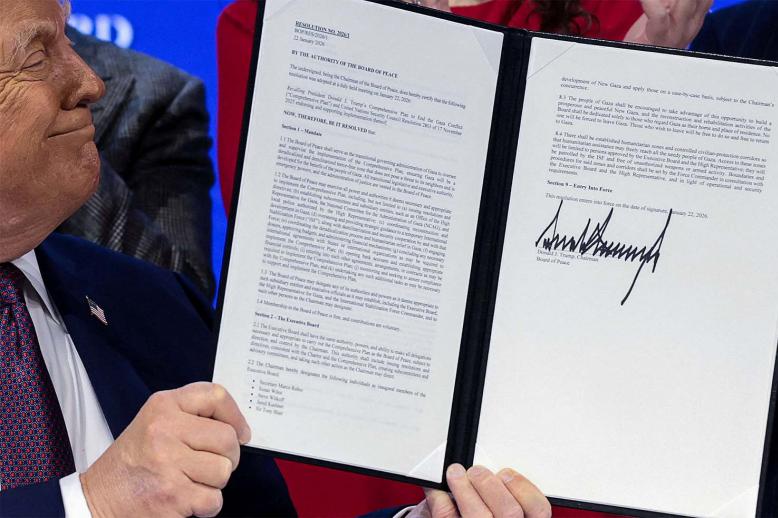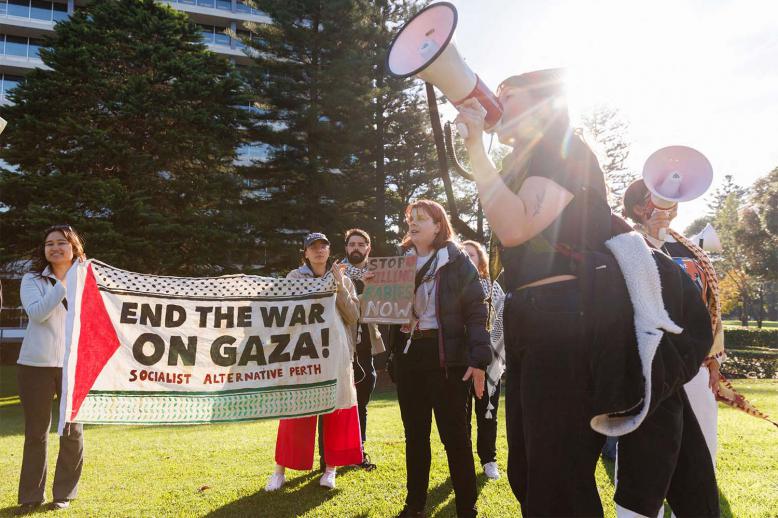Election results are indicative of changes in Israel and the region
Whether Israeli Prime Minister Binyamin Netanyahu manages to form a cabinet or not is not as important as that he understands the great change in Israel, where the competition is between the right and the right for the purpose of marginalising any role for Arab parties.
The two major right-wing groups — the Likud party and the Blue and White alliance — do not want to hear about Arab parties despite their good performance in the March 2 election.
Netanyahu has rehabilitated his image and clinched a political victory at the same time. The Likud bloc finished with the most seats so, unless the courts say otherwise, it is up to Israeli President Reuven Rivlin to task Netanyahu with forming a cabinet.
It is remarkable how Israeli voters put their trust in Netanyahu again despite corruption charges him for which he is to appear in court March 17. This indicates the Israelis are no longer interested in ethical considerations.
All that is important for the ordinary Israeli is following a right-wing policy based on achieving welfare and comfortable living and consecrating the occupation to the West Bank, while ignoring what was called the peace process with the Palestinians.
It is not guaranteed Netanyahu will be able to form a government. He needs 61 Knesset votes for that and he only has 58.
While waiting for that drama to unfold, there are other issues worth mentioning to understand the radical transformation in Israel in the past 20 years, leading to Netanyahu becoming the new “king of Israel.” He won this title because he has held the position of prime minister the longest.
The first issue is that the real winner in today’s Israel is the Israeli assassin of Yitzhak Rabin in November 1995. His name is Yigal Amir, a young Jewish extremist of Yemeni origin.
In his confessions, Amir said he decided to kill Rabin because Rabin signed the Oslo Agreement with Palestinian leader Yasser Arafat in 1993. Since Rabin’s death, the peace process died and another Israel was born the moment Amir fired his deadly shot.
With that shot, he ended the life of a political figure who had been the Israeli Defence Forces chief-of-staff during the 1967 war and who had symbolised the ability and courage to take the difficult and right decisions to achieve peace with this Arab country or the other.
Rabin’s assassination marked the end of political leaders in Israel associated with specific important historical events since David Ben-Gurion announced the establishment of the state in 1948 or with Israel’s 1956, 1967 and 1973 wars.
The only one left was Shimon Peres but he turned out to be lacking the leadership qualities that would have enabled him to take tough decisions, as evidenced by his inability to politically survive Rabin. Peres lost the 1996 elections even though most Israelis were sympathetic to his Labour Party at that point.
As for Ariel Sharon, he remained a right-wing politician without vision or scope. His only interest was to keep gnawing at Palestinian lands until comes the day when all hope for a viable Palestinian state dies.
Netanyahu represents the Israel born on the day of Rabin's assassination. Above all, he represents the transformation in the Israeli society.
Through suicide bombings in Jerusalem, Tel Aviv and elsewhere in the 1990s and early 2000s, Hamas helped this transformation take place and to thwart any peace process.
In 2002, and while the Arab summit in Beirut was ending, a suicide bombing was carried out near the Lebanese border, killing a number of Israeli civilians. Obviously, the aim of that operation was to nip in the bud the Arab Peace Initiative endorsed by that Arab summit.
Beside the role of Iran-backed Hamas in changing the nature of Israeli society, there were other significant factors. For example, it would be naive to ignore the role of the newly found great wealth created by Israeli high-tech companies. Suddenly, the tough and romanticised life in the kibbutz that symbolised Israeli society became a distant memory.
Israel has changed tremendously internally. Its relations with the United States in the era of President Donald Trump have changed as well. The region has also changed. The biggest change was improved Russian-Israeli relations. There is clear coordination in policies and operations between the two sides in Syria, for example. Netanyahu and Russian President Vladimir Putin have become great buddies.
What many ignore is that repercussions of the political earthquake that shook Iraq in 2003 reverberate in the region. The American occupation and the non-sustainable regime that replaced it wiped out the Iraq that we have always known.
Syria is also gone and Lebanon is on its way to disintegration. We still do not know how Hezbollah, Iran’s sectarian militia in control of Lebanon’s current “glory days,” to borrow its words, is going to cope with this collapse. On top of this, most official and popular Arab public opinion sees Iran as the greatest danger to the Arabs.
So, whether Netanyahu gets his government is not as important as understanding the great changes in the region through what is happening in Israel.
Given this premise, isn’t it strange that the Palestinian National Authority condemns the so-called Deal of the Century and then stands by as a spectator? Isn't it even stranger that there is a lot of talk about the need to restore the Palestinian national unity in response to this deal, while the reality indicates that the Palestinian internal rift has become more profound than ever?
These are mere observations about the changes we see taking place in the whole region and in Israel itself, where the only constant is that of more settlements and expansion of the occupation zone, whether Netanyahu forms a government or not.
Khairallah Khairallah is a Lebanese writer.
Copyright ©2020 The Arab Weekly







